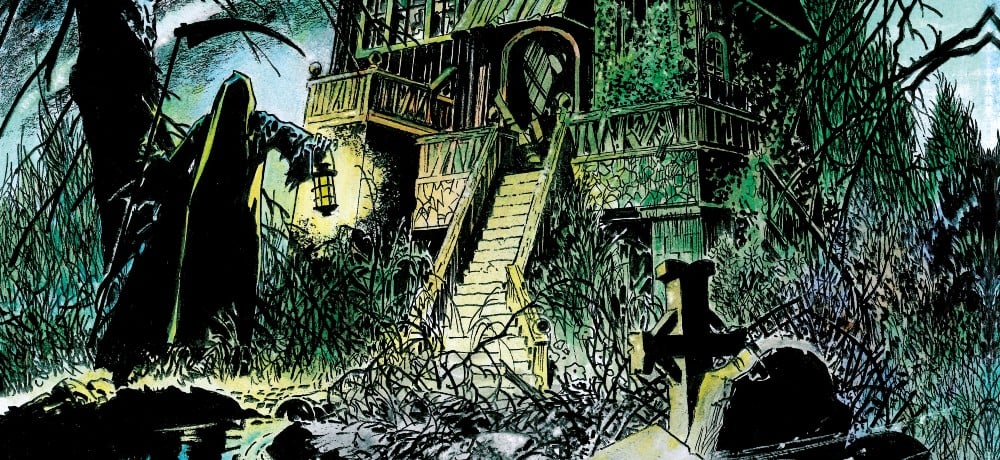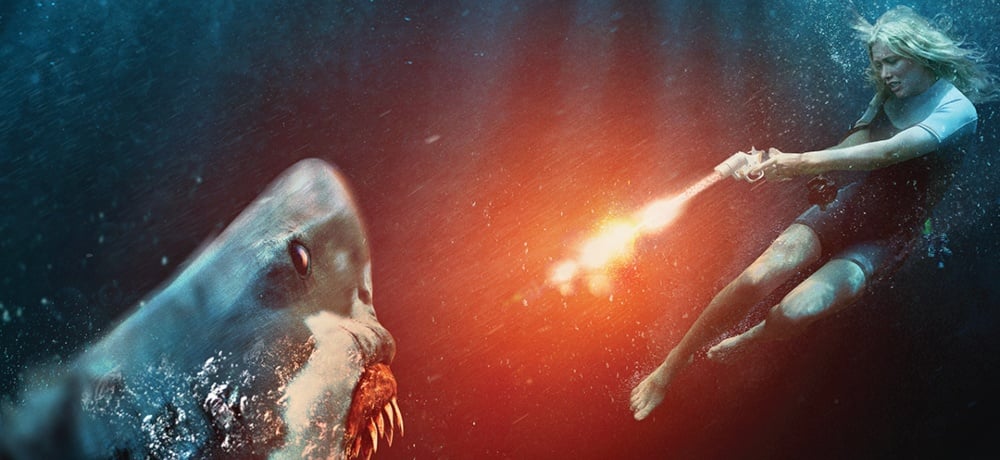






Of the creature feature subgenre, shark movies represent a unique sect capable of encompassing a range that spans from Jaws to Sharknado. Shark films can be truly exceptional pieces of film and they can be so off-the-wall and ridiculous that they achieve a whole other form of greatness. From the frightening to the ludicrous, shark movies are easy to love and offer a simple blueprint for filmmakers to follow. Which is why it’s almost impressive how much Great White manages to miss the mark.
Great White is the feature directorial debut of Martin Wilson with screenwriter Michael Bougen. The film stars Katrina Bowden (Piranha 3DD, Tucker & Dale vs. Evil), Aaron Jakubenko, Kimie Tsukakoshi, Tim Kano, and Te Kohe Tuhaka (Love and Monsters).
In Great White, a tourist escape to an island paradise turns deadly when a seaplane carrying five passengers goes down near the site of a shipwreck. An aggressive great white shark attacks the downed plane and the surviving passengers and drives them to the relative safety of an inflatable life raft. Miles from the shore, low on supplies, and stalked by the fearsome predator, it’s a desperate bid for survival.
As mentioned at the outset, shark films of all stripes—be they silly or serious—follow a set of basic principles. Regardless of the details and tone, shark films are built on the traditional narrative structure of individual versus nature. The classic struggle. It’s elegant and it’s all the genre needs. To its detriment, Great White adds story elements on top of the minimalist survival narrative and the result is shallow.
Two couples make up the core of Great White. One couple is comprised of a husband who is an insufferable caricature of privilege and cowardice, and a wife with familial ties to the island. The other couple is a pair of harmonious adventurers, facing pregnancy and grappling with previous trauma, respectively. The impression left by each of these characters is that they brought too much baggage into the film. The film lazily reaches for emotional stakes that seem out of place in this survival feature. In most instances, this deep character information is mentioned or alluded to, but doesn’t add anything other than dead weight to the film. When the common enemy is a massive killer shark, personal dramas in the confined space of a lifeboat pale in comparison.
Where individual characters can be found likable, the group dynamic of Great White’s ensemble is grating. There is a vast difference between watching a fight for survival and watching a group of people constantly fight with each other. The screenplay misconstrues drama for arguing and it was not long before this critic wished for a needle to pop the lifeboat and put an end to the ordeal.
As for the titular great white, his presence was sparse. Where other shark features have created an air of mystery by limiting the screen time of a monster predator, Great White feels empty. The absence is such that it almost lowers the stakes. Is the lifeboat still being stalked? The few scenes the shark does appear in are nothing to write home about. They fulfill their purpose—no more, no less, and not nearly often enough.
Unfortunately, Great White is dead in the water. Despite being given terrible characters to work with, the cast performs earnestly and effectively, but it’s not enough to drum up any support of the overall picture. Within its subgenre, Great White has all the impact of a guppy in a shark tank.
Great White will be available in theaters, digitally, and On Demand on July 16th, 2021
Movie Score: 1/5